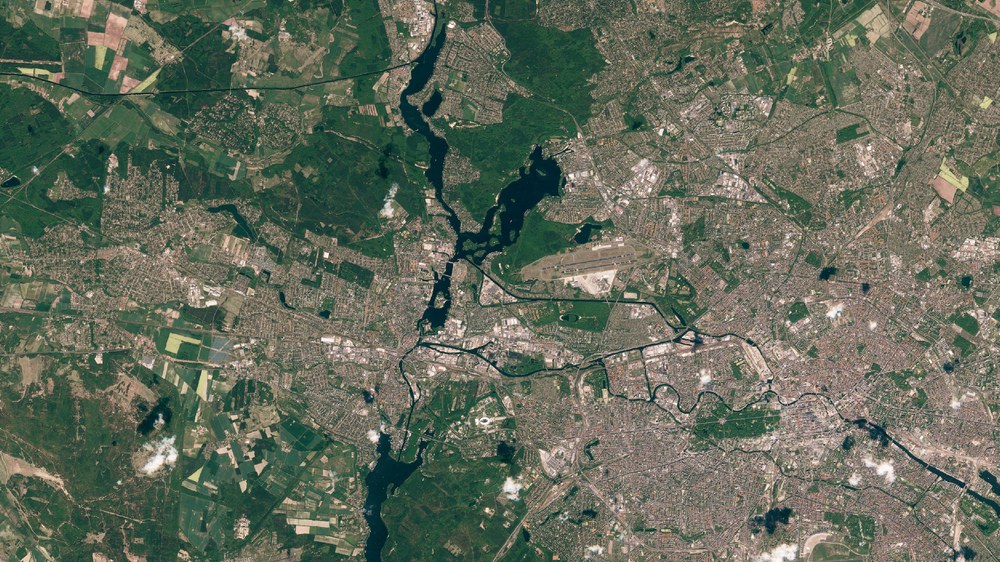Earth observation portal CODE-DE entering next phase

- From April 2020, the Earth observation portal CODE-DE will undergo a second phase of development and optimisation.
- The DLR Space Administration has now commissioned CloudFerro and Erteco Technologies to provide the services.
- In future, the platform's infrastructure and all user data will be subject to national data protection laws.
- Focus: Space, Earth observation
Use Earth observation data free of charge – the Copernicus Data and Exploitation Platform Germany (CODE-DE) of the German Aerospace Center (Deutsches Zentrum für Luft- und Raumfahrt; DLR) offers this special service to users from scientific and public institutions in Germany. From April 2020, the portal will undergo a second phase of development and optimisation. On behalf of the Federal Ministry of Transport and Digital Infrastructure (BMVI), the DLR Space Administration has now commissioned the companies CloudFerro and Erteco Technologies to implement and provide the services until 2022.
Data will be stored and processed on servers located in Germany
Since the beginning of 2017, CODE-DE has provided efficient, fast and comprehensive access to data from the Sentinel satellites of the European Copernicus programme as well as to the Copernicus services. With around 250,000 data downloads and more than 2000 registered users, the portal has now successfully established itself and promotes the utilisation of Copernicus data in Germany. With the start of its second phase, the infrastructure and all user data of CODE-DE will be subject to national data protection laws and must conform to the standards of the German Federal Office for Information Security (BSI) regarding the use of external cloud systems. This means that the portal will also be useable by federal entities without restrictions. Alongside the scientific community, federal and other public institutions make up the main target group for the service. This will ensure that the public in Germany benefit fully from the Copernicus programme.
Synergies with the European Earth observation platform
"CODE-DE users will also benefit in future from synergies with the European Earth observation platform CREODIAS. This will give CODE-DE significantly greater flexibility and capacity – which will be noticeable," stresses Michael Schmidt, CODE-DE Project Manager at the DLR Space Administration. The Copernicus data provide comprehensive information about Earth’s land, water and ice masses as well as climate data from the atmosphere. This allows for the recording of soil and vegetation conditions but also of glaciers and ship passages in the northern seas. The concentration of climate-relevant gases can also be measured. Copernicus data even play an important role in daily weather forecasts. The portal also offers an effective working environment for Artificial Intelligence (AI) evaluation methods. DLR’s German Remote Sensing Data Center (DLR-DFD) has operated CODE-DE since 2017 and will continue to do so until 31 March 2020.
National supporting measures for Copernicus
The DLR Space Administration is implementing national Copernicus measures on behalf of the BMVI. These support the use of the programme in Germany and the goals of the Federal Government's Copernicus Strategy. CODE-DE is one element of these measures. The platform will be operated by CloudFerro, a leading European provider of cloud infrastructure as a service, and Erteco Technologies GmbH, a technology and software development company based in Munich.
